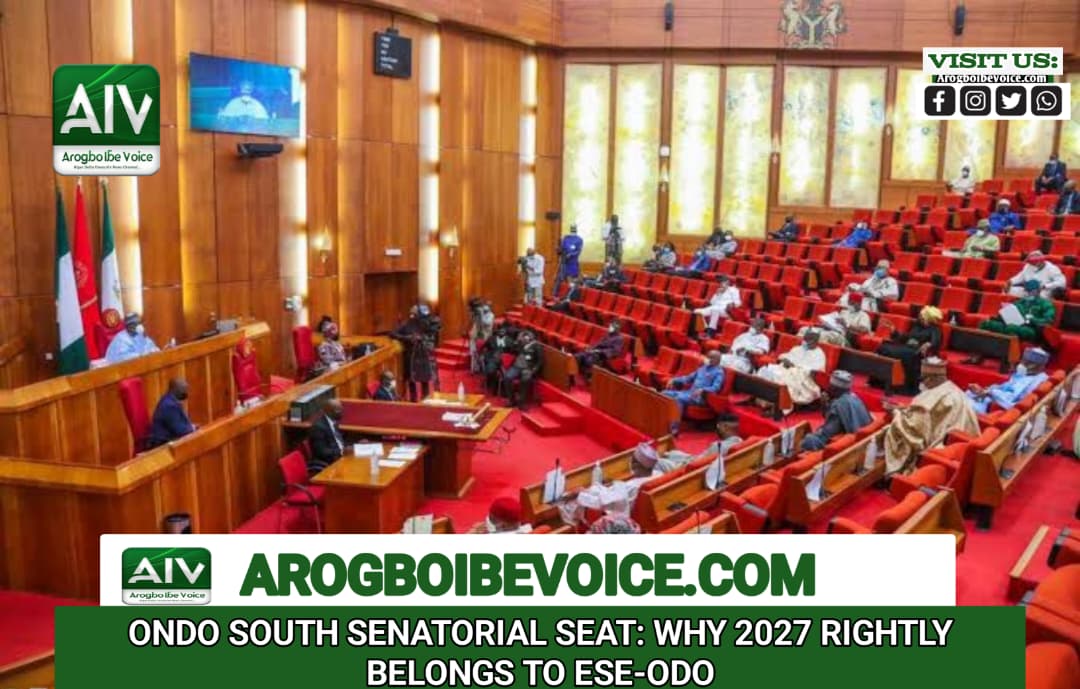Ondo South Senatorial Seat: Why 2027 Rightly Belongs to Ese-Odo
Ondo State, fondly known as the Sunshine State, has long been one of Nigeria’s most politically vibrant states. Since its creation in 1976, the state has witnessed both progressive strides and difficult moments. Yet, in the midst of this political evolution, the call for equity, justice, and inclusivity has never been louder; especially as the 2027 general elections draw closer.
A critical evaluation of the state’s political history reveals glaring imbalances in the representation of Ondo South Senatorial District, which comprises six local government areas: Ese-Odo, Ilaje, Ile-Oluji/Okeigbo, Irele, Odigbo, and Okitipupa.
24 Years of Political Exclusion
Since the return to democratic rule in 1999, all five local governments in Ondo South have had a shot at the senatorial seat; except Ese-Odo.
1999 – 2003: Senator Omololu Samuel Meroyi (Odigbo LGA)
2003 – 2011: Senator Hosea Oladapo Ehinlanwo (Ilaje LGA)
2011 – 2015: Senator Boluwaji Kunlere (Okitipupa LGA)
2015 – 2019: Senator Yele Omogunwa (Irele LGA)
2019 – 2023: Senator Nicholas Tofowomo (Ile-Oluji/Okeigbo LGA)
2023 – present: Senator Jimoh Ibrahim (Okitipupa LGA)
This historical record clearly shows that for nearly a quarter of a century, Ese-Odo has been systematically sidelined in the political equation of Ondo South.
A Question of Equity and Fairness
Observers and stakeholders argue that this persistent exclusion is more than an oversight; it undermines inclusivity and contradicts the principles of democracy. Ese-Odo, renowned for its vibrant culture and capable leaders, has contributed immensely to the growth of Ondo State. Yet, its people have never been allowed to occupy the senatorial seat.
2027: Time to Correct the Imbalance
As 2027 approaches, political watchers insist that justice demands Ese-Odo’s turn. Stakeholders; from traditional rulers to political leaders, civil society, and the electorate; are being urged to recognize this historical marginalization and work towards correcting it.
“It is not about favouritism but fairness,” says Pharm. Allen S.E., a concerned indigene of Ese-Odo. “Our local government has produced competent, visionary, and patriotic individuals who have served the state and the nation diligently. Denying us the senatorial seat any further would not only be unjust but also destabilizing.”
The Call for Inclusive Representation
The principle of rotational representation, many argue, fosters peace, progress, and unity. Allowing Ese-Odo to take its rightful turn in 2027 would be a decisive step toward balance and inclusivity in Ondo South.
As campaigns prepare to gather momentum, the big question remains: will Ondo South stakeholders rise above parochial politics and give Ese-Odo the chance it deserves?

